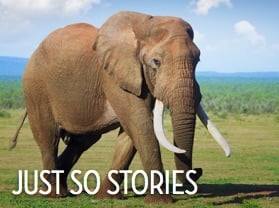Avoiding Damage to Young Writers
The premise of Brave Writer is that writing grows naturally in writers as they are allowed to develop a relationship to the page that represents their original thoughts, language, and ideas. This development will be as meandering as the development of speech, but it will show growth and development nonetheless.
What happens when natural development is
controlled through regulated programs, instead?
What happens when a parent believes that a child doesn’t yet have anything valuable to say and will only have something worth writing when he or she is much older and has absorbed the forms and thoughts of classical writers or those who are mature adult authors?
Let’s use the analogy to speech. If we required children to speak correctly, to use proper manners, to form complete sentences, to only speak once they were able to reproduce what they heard adults say, how much joy would that child take in speaking? Speech would become a source of anxiety and potential failure rather than a vehicle for communication.
When teaching writing, we need to be attentive to the messages we send based on the program we use. Imitation of classic writers is a noble goal. I like that Charlotte Mason suggests reading these writers each day, over time, with confidence that children can understand them and learn from them. E. B. White, the great American stylist, says that we would do well to sit in a parlor with the great writers of history in order to learn their syntax and usage, their style and wit. Since they are mostly dead, reading their writing will have to suffice.
Reading great writers is key to growth in writing.
Can we then go the next step and require or suggest imitation? And at what ages?

Brave Writer offers a course called Just So Stories that uses the principles of imitation for the writing product that results. We read four of the stories, examine them for their literary elements and techniques and then each student writes her own “Just So Story” based on the model by Rudyard Kipling. The results are delightful. So I am not at all opposed to imitation per se.
What I want to emphasize, however, is that imitation is most fruitful in a child who has already experienced freedom in writing. It is more difficult to inject voice into a regimen of imitating than it is to inject imitation of specific literary techniques into a well-developed writer’s voice.
Brave Writer starts with the child and what he or she wants to say…
…but we have no problem offering tantalizing exercises that use classic writers for models. What I want to avoid is drudgery:
- models that don’t inspire imitation,
- models that are too advanced for a child’s particular developmental stage,
- or the idea that models take precedence over the individual child’s developing writing voice.
Reading great writers is key to growth in writing.
In other words, imitation ought to be a cheerful, natural time of word play – a chance to show off skills, to toy with language, to control the act of writing to approximate someone else’s style and wit. It ought not to be a time of drudgery where the student’s original writing voice is discredited, overridden, or judged as inferior to the model. It shouldn’t be a time of technical accuracy as much as joyful appropriation.
I like to call this kind of writing “stealing.” Steal the good stuff from those who are better at writing than you are. Hi-jack their literary elements and manipulate those elements so that they dress up your writing, not so that you relinquish control over your voice for the sake of sounding like someone else.
Let me give you an example of how this works:
Lots of kids know advertising syntax backwards and forwards. Give them a product, they’ll give you a jingle. If asked to write ad copy for a bicycle or a teddy bear, they can do it with alarming competence (no need to teach the elements of advertising – they know them from repeated exposure). What they express sounds like the ads you hear on radio or TV.
So if we want our kids to learn argument, we need to read, read, read argument. We explain how argument works, we deconstruct argument in the writings of great writers and we allow our kids to play with argument – perhaps starting with silly arguments they care about (why kids should not have to do chores, or why a child deserves to his own bedroom). The forms of expository writing (such as persuasive, compare and contrast, informative and so on) take time to absorb and are not appropriate for kids under 13 (in my humble opinion). Rhetorical thinking is developed in the teen years. Children under 13 can be expected to cite reasons for what they believe or feel, but that is not the same as argument (which requires an ability to nuance positions by evaluating sources and so forth).
Writing programs that marshal a child’s writing efforts into preconceived writing formats at a young age stifle the important development of writer’s voice and can ironically strip a child of joy in the process.
The ownership of the writing product is inadvertently stolen from the writer and is instead assigned to the model. Children learn then that writing is not about what they want to say, but guessing and working hard to figure out what they are supposed to say.
Over time, this experience can become tedious and even painful. Some children lose heart completely. I’ve taught many students who have come to me as teens who have never known that writing is related to them and their ideas in any way. It is a shock to their systems to realize that I am interested in their thoughts in their own words. And that moment is usually the beginning of recovery of voice.
Click to read more about Brave Writer and Classical Writing and the development process towards Academic Writing.
Just So Stories is an excellent class to take after The Writer’s Jungle Online or once you’ve worked through The Writer’s Jungle (though neither is required).
Brave Writer techniques such as list-making, freewriting, revision strategies and editing are all used in this new context of story-writing.



















